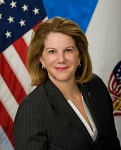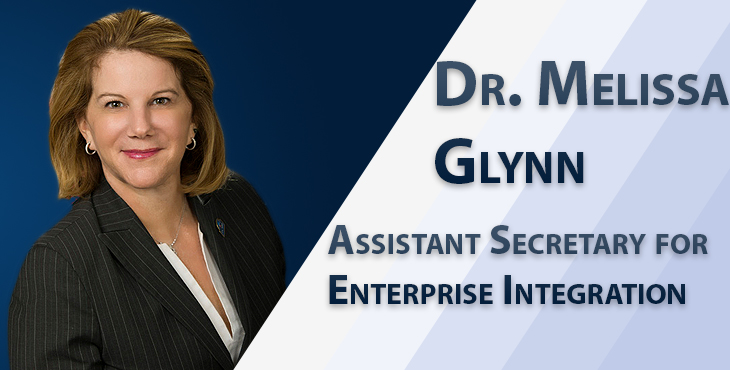This Veterans Month we honor America’s Veterans for their bravery in war, their patriotism, and their willingness to serve our nation and protect our freedom. As Veterans Month draws to a close, we are reminded that there is no greater honor than to care for our nation’s Veterans. To serve those who serve.
The Department of Veterans Affairs is committed to ensuring that our Veterans get the support they need to thrive when they return from their service, and that includes support for their physical and mental health and beyond. I know that this is work we at VA cannot do alone. Providing the best care for our Veterans and their families depends on strong networks of collaborative relationships that bring the best programs to the fore.
I am proud of the VA’s long history of innovation: the first successful liver transplant, development of medicine to reverse and cure Hepatitis-C, the first coronary artery bypass, the invention of the nicotine patch and the use of bar-code technology to track medications, to name a few.
Now we are leading the way in using innovative public-private partnerships to expand evidence-based services that improve quality of life for our Veterans, including and especially those with service-connected disabilities like post-traumatic stress disorder (PTSD).
Veterans with PTSD continue to experience negative impacts that permeate throughout their lives. Increasingly we are finding that the work required to treat PTSD effectively extends beyond the hospital walls. Which is why we are pursuing opportunities to treat the whole person and not just the symptoms of PTSD.
This doesn’t just mean more funding for additional programs, it means using the funding we have more wisely. It means exploring innovative ways to expand evidence-based programs with a track record of results.
Consider a project we just launched with partners across the public, private and nonprofit sectors. The Veterans Coordinated Approach to Recovery and Employment (Veterans CARE) Pay for Success project will expand an individualized approach to supportive employment for Veterans with PTSD, with a $5 million investment from private investors.
Three key innovations underlie the project:
First, Veterans CARE will provide Veterans from recent tours of duty with the support they need to succeed. For the up to 1 million Veterans from the Gulf War era struggling with PTSD, finding and maintaining employment can present a seemingly insurmountable challenge. Yet, evidence shows that when we pair individualized employment support with clinical care, we can help Veterans overcome this obstacle, improving not only their lives but those of their families and communities, as well.
Second, Veterans CARE leverages private capital to improve outcomes for our Veterans, transferring the risk of innovating from the public to the private sector. Through a model called Pay for Success, impact investors provided the upfront capital to fund the program. Specialists from our own research center in Tuscaloosa, Alabama are helping to implement Individualized Placement and Support (IPS) programs at our VA medical centers in New York, Boston and Western Massachusetts. As positive outcomes – including increased employment and improved earnings and job satisfaction- are achieved for our Veterans –then and only then, will government partners repay the project investors.
The Pay for Success model is being used across the United States and globally to address challenges around health, education, housing, criminal justice and more. Veterans CARE is the first Pay for Success project globally to serve Veterans.
Through the Veterans CARE project, we are building the evidence base to expand a promising national model for care. Veterans CARE is just one example of how we are employing 21st century technologies and principles. At VA, we are committed to innovating and to building public-private partnerships that improve the standard of care for all our Veterans, to help them live full and productive lives. Our Veterans deserve nothing less.

Topics in this story
More Stories
The Medical Foster Home program offers Veterans an alternative to nursing homes.
Watch the Under Secretary for Health and a panel of experts discuss VA Health Connect tele-emergency care.
The 2024 National Veteran Suicide Prevention Annual Report provides the foundation for VA’s suicide prevention programs and initiatives.






